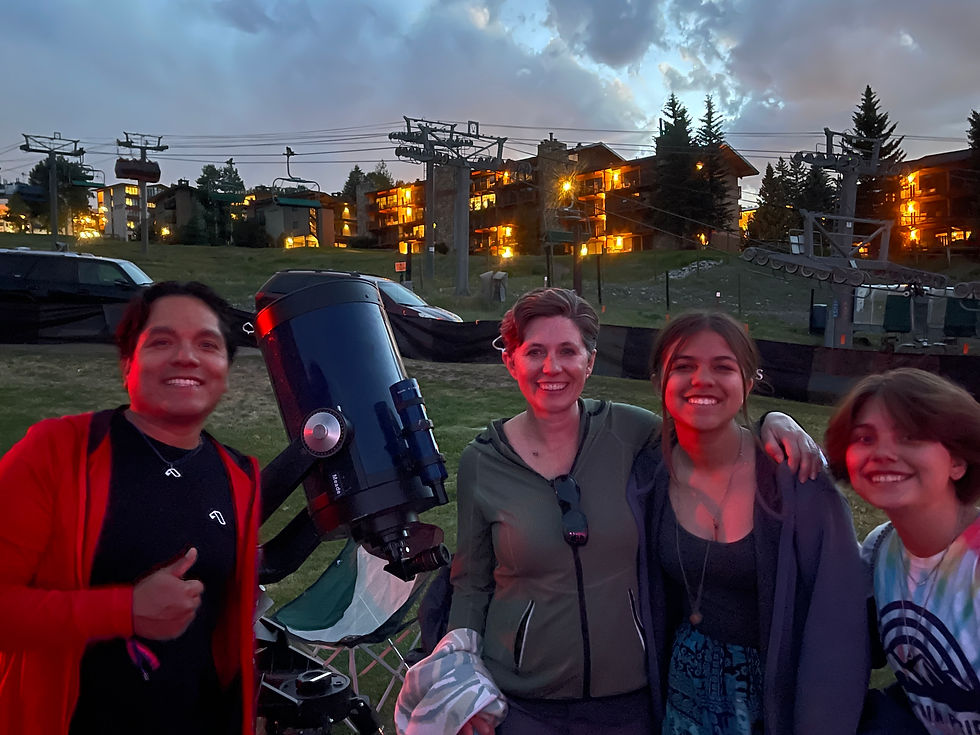- Luke

- Oct 1, 2025
- 2 min read
We’re thrilled to share some exciting news—our Breckenridge stargazing tours have a new home, and it’s under some of the darkest skies in Colorado!

A New Stargazing Spot at Beaver Run Resort
Our Breckenridge Dark Sky Tour now begins at the Beaver Run Resort & Conference Center (620 Village Rd, Breckenridge, CO). From the Imperial Deck, you’ll enjoy wide-open mountain vistas that transform into a celestial theater as the sun dips below the Rockies. This spot offers panoramic views with easy access—no hiking required—making it perfect for guests of all ages.
As the evening unfolds, you might catch a glowing alpine sunset, spot local wildlife, or even see a horse and carriage clip-clopping past as we prepare the telescopes.
What to Expect on the Dark Sky Tour
Led by a professional astronomer, our tour is a journey across the night sky. With the help of large telescopes and a powerful laser pointer, you’ll learn how to recognize constellations, follow the movement of planets, and even navigate like the explorers of old.
Highlights often include:
Satellites gliding silently overhead
The fleeting magic of shooting stars (if luck is on our side)
Nebulae, star clusters, and distant galaxies glowing in vivid detail through our telescopes
To enhance the experience, we provide red flashlights to protect your night vision as we guide you through the cosmos.
Why the Move?
Our tours were previously hosted at The Lodge at Breckenridge, a beautiful spot that we’ll always cherish. But moving to Beaver Run allows us to expand accessibility, add comfort, and—most importantly—celebrate Breckenridge’s recognition as a Dark Sky Community.
This certification means Breckenridge is officially committed to preserving its night skies through careful lighting practices, making it one of the best places in Colorado to connect with the stars.
What to Bring
Warm layers – mountain nights get chilly after sunset
Your questions and curiosity – our astronomers love to dive into the mysteries of the universe with you
A sense of wonder – the night sky never disappoints
A Note About Weather
Like all our locations, this tour is at the mercy of Mother Nature. If the skies don’t cooperate, cancellations may occur—but when they clear, the view is worth the wait.
✨ Join us in Breckenridge for an unforgettable Dark Sky experience. Whether it’s your first time under the stars or your hundredth, the mountains will leave you in awe.

.png)


